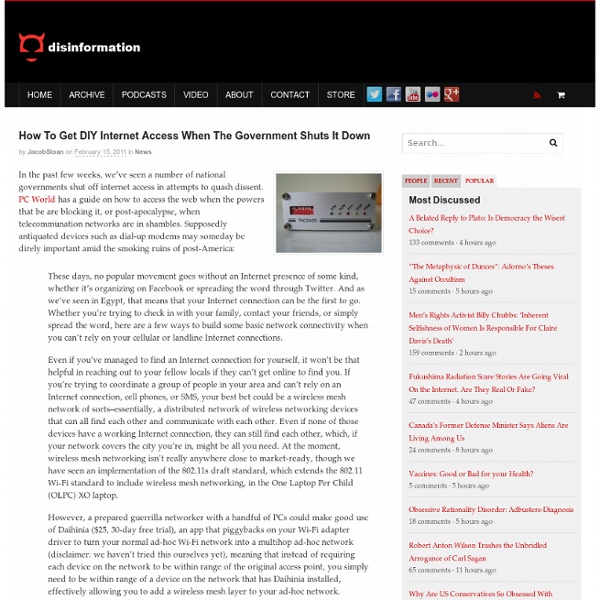



Free From Wikipedia, the free encyclopedia Free may refer to: Free may also refer to: Media[edit] Arts and philosophy[edit] Computing[edit] Mathematics[edit] Music[edit] Performers[edit] Albums[edit] Songs[edit] Organizations[edit] Public services[edit] Free education, education provided at no cost to all studentsFree public transport, zero-fare services, funded without collecting fares from passengers Other uses[edit] See also[edit]
Report: 90% Of Waking Hours Spent Staring At Glowing Rectangles PALO ALTO, CA—A new report published this week by researchers at Stanford University suggests that Americans spend the vast majority of each day staring at, interacting with, and deriving satisfaction from glowing rectangles. Robert Horton spends a quiet night at home with his favorite entertainment rectangles. "From the moment they wake up in the morning, to the moment they lose consciousness at night, Americans are in near-constant visual contact with bright, pulsating rectangles," said Dr. "I'm sorry," Menken continued. According to the report, staring blankly at luminescent rectangles is an increasingly central part of modern life. People travel hundreds of miles to gape unblinkingly at the rectangles of the big city. Researchers were able to identify nearly 30 varieties of glowing rectangles that play some role throughout the course of each day. Added West, "Some even become irritated and angry when these rectangles are not around."
News A newspaper is one of the most common ways to receive the latest news. News is the communication of selected[1] information on current events. It is shared in various ways: among individuals and small groups (such as by word of mouth or newsletters); with wider audiences (such as by publishing, either in print or online, or broadcasting, such as on television or radio); or in ways that blend those traits (such as when social media sharing starts among individuals but goes viral). Etymology[edit] The English word "news" developed in the 14th century as a special use of the plural form of "new".[2] In Middle English, the equivalent word was newes, like the French nouvelles and the German neues. Similar developments are found in the Slavic languages—the Czech and Slovak noviny (from nový, "new"), the cognate Polish nowiny and Russian novosti—and in the Celtic languages: the Welsh newyddion (from newydd) and the Cornish nowodhow (from nowydh). History[edit] Forms of news[edit] Newspaper[edit] 1.